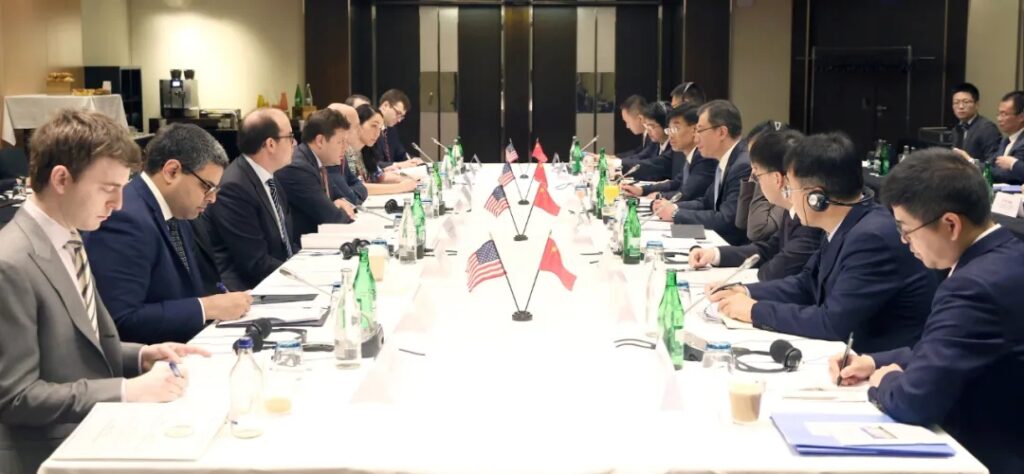China and the US held their first meeting of intergovernmental dialogue on artificial intelligence (AI) in Geneva on Tuesday local time. Both sides engaged in in-depth, professional, and constructive exchanges of views on AI technology risks, global governance, and other issues of mutual concern, the Chinese Foreign Ministry said on Wednesday.
The meeting was co-chaired by Yang Tao, Director-General of the Department of North American and Oceanian Affairs of Chinese foreign ministry, Seth Center, the State Department’s acting special envoy for critical and emerging technology, and Tarun Chhabra, senior director for technology and national security at the National Security Council (NSC) of the US.
Representatives from various Chinese ministries and agencies, including the Ministry of Science and Technology, the National Development and Reform Commission, the Cyberspace Administration of China, the Ministry of Industry and Information Technology, and Office of the Central Commission for Foreign Affairs, as well as representatives from the US NSC, Department of State, and Department of Commerce, attended the meeting, the Chinese Foreign Ministry said.
Both sides engaged in in-depth, professional, and constructive exchanges of views on AI technology risks, global governance, and other issues of mutual concern.
The two sides introduced their respective views on AI technology risks and governance measures, as well as the measures taken to promote the empowerment of AI in economic and social development.
China emphasized that AI technology is currently one of the most closely watched emerging technologies and reiterated its commitment to the people-centered and benevolent use of AI, ensuring that AI technology is beneficial, safe, and fair.
China supports strengthening global governance of AI and advocates for the role of the UN as the main channel. China is willing to strengthen communication and coordination with the international community, including the US, to form a global AI governance framework and standard norms with broad consensus.
China also expressed a firm stance regarding US restrictions and suppression against China in the field of AI.
Both sides recognized that the development of AI technology presents both opportunities and risks. They reaffirmed their commitment to implementing the important consensus reached by the two heads of state in San Francisco.
Some Chinese experts considered the first intergovernmental dialogue between the two countries on AI as a positive sign for the two major powers to mitigate misunderstandings, close the gap in divergences, and seek cooperation potential in this field.
But they also said it is crucial for the US, which has long regarded AI as a core strategic area of competition against China, to abandon its constraints of technological protectionism and work toward promoting possible common solutions on topics of concern.
(Global Times)




